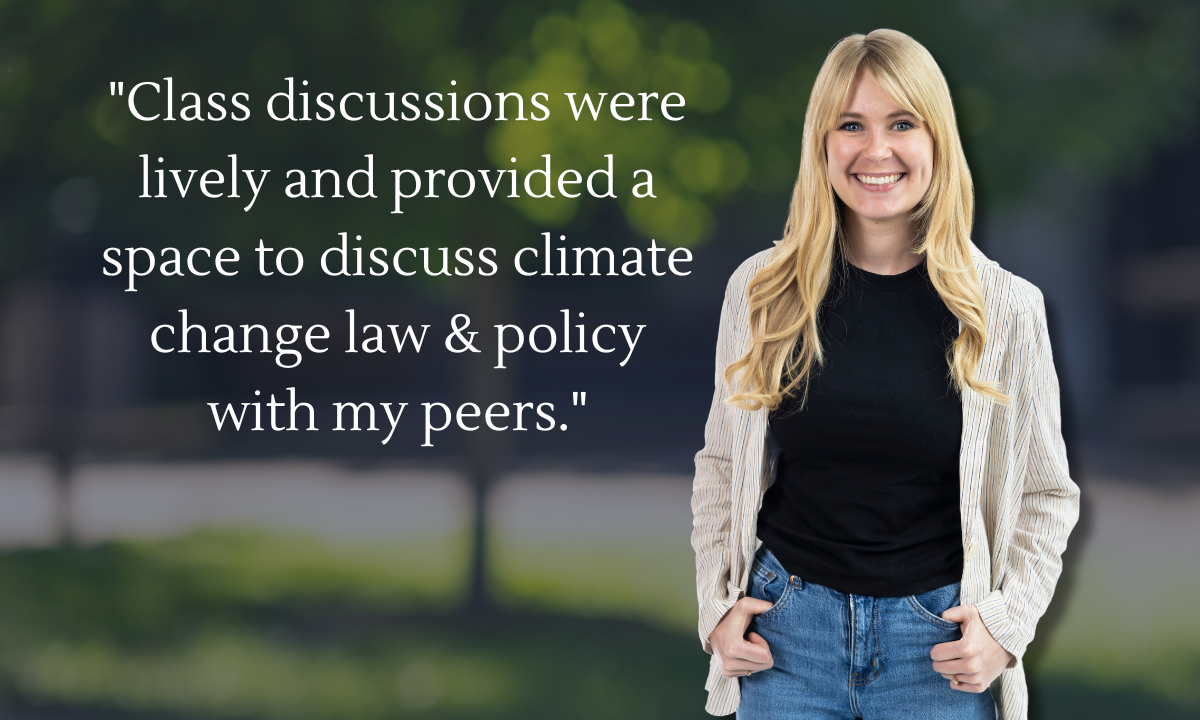During his two years of teaching middle school math in Wilmington, Delaware through Teach for America, Daniel Hay realized he would need a law degree to effect meaningful change in the educational system. “I saw that much of what I wanted to do to improve my own classroom was limited by policy and legislation that didn’t have best interests of students in mind,” Hay recalled.
Teaching was also what drew Hay to Vanderbilt Law School. When he visited law schools in 2012, “What stood out about Vanderbilt was the emphasis on high-quality teaching,” he said. “I would put Vanderbilt’s faculty up against any other school I visited.”
Since choosing Vanderbilt, Hay says that the faculty has exceeded his high expectations. “I think every student should have their first law class from Professor [Suzanna] Sherry. She is an unparalleled academic, but also puts pride and energy into perfecting her teaching. If she taught high school literature, she’d be a national teacher of the year; if she taught piano, her students would play at Carnegie Hall. From the Dean to the most junior faculty member, every professor here cares about, takes pride in, and continues to improve their teaching.”
Before his two years as a teacher, Hay worked as a district aide and speechwriter for New Jersey Congressman Scott Garrett. His time in the workforce made the adjustment to law school easier. “I’m used to having work time and home time,” he said. “It’s important to me to take a few hours every night to get away from school and spend time with my wife, Ashley, and our two dogs.”
Hay enjoys writing and editing, and he has particularly enjoyed his work on the Vanderbilt Law Review, where he is editor-in-chief for 2014-15. “Using writing as a way to make arguments and shape society has always been fascinating to me,” he said. “Reading the Federalist Papers in college, I loved the way people had great debates on paper—something we don’t, and perhaps no longer can, do today.” Hay and the Law Review’s articles editors will review between 2,000 and 2,500 scholarly articles to select the 16 to 18 articles the Law Review will publish in 2014-15. “One of the reasons I wanted to be editor-in-chief was the opportunity to engage with some of the most cutting edge legal scholarship (and scholars) in the country,” he said.
Hay’s Note, “Baptizing O’Brien: Towards Intermediate Protection of Religiously Motivated Expressive Conduct,” which addresses incidental legislative limits on free speech and religious exercise, was selected for publication in the January 2015 edition of the Vanderbilt Law Review. “I was sort of floundering,” he confesses, “and I asked Professor [Mark] Brandon a question about a case we read in First Amendment Law. We ended up talking for at least 45 minutes after class, and I completely changed paths and rewrote my Note over the course of a weekend.”
Hay enjoyed working as a summer associate at Sidley Austin in Washington, D.C., during summer 2014, and he joined the firm as an associate in 2016 after clerking for Judge Steven M. Colloton on the U.S. Court of Appeals for the Eighth Circuit in 2015-16 term. “Judge Colloton is an exceptional writer and a brilliant jurist,” he said. “He was my number one choice, and I had a great experience working for him.”
After launching his legal career, Hay hopes to apply his background and experience as a public school teacher to pro bono work focused on improving public education. “I‘ve met several alumni who serve on charter school boards or donate pro bono hours to students and their families,” he said. “Hopefully I will have similar opportunities throughout my career to improve public schools through legal advice and services.” At Vanderbilt, Hay took the Pro Bono Pledge, and he had mentored public school students and taught classes covering basic legal concepts to teens in a residential foster care facility through the Street Law program.

